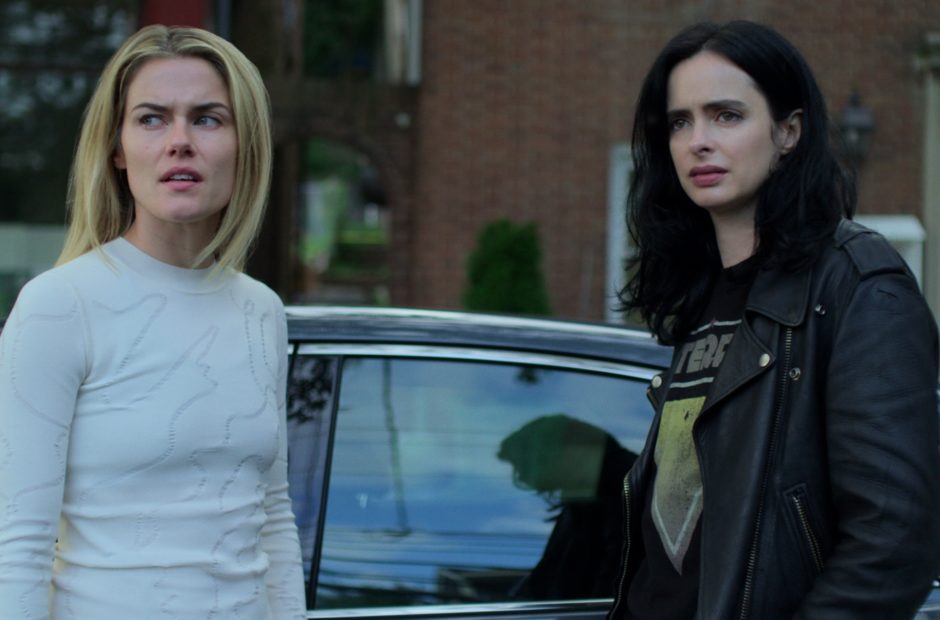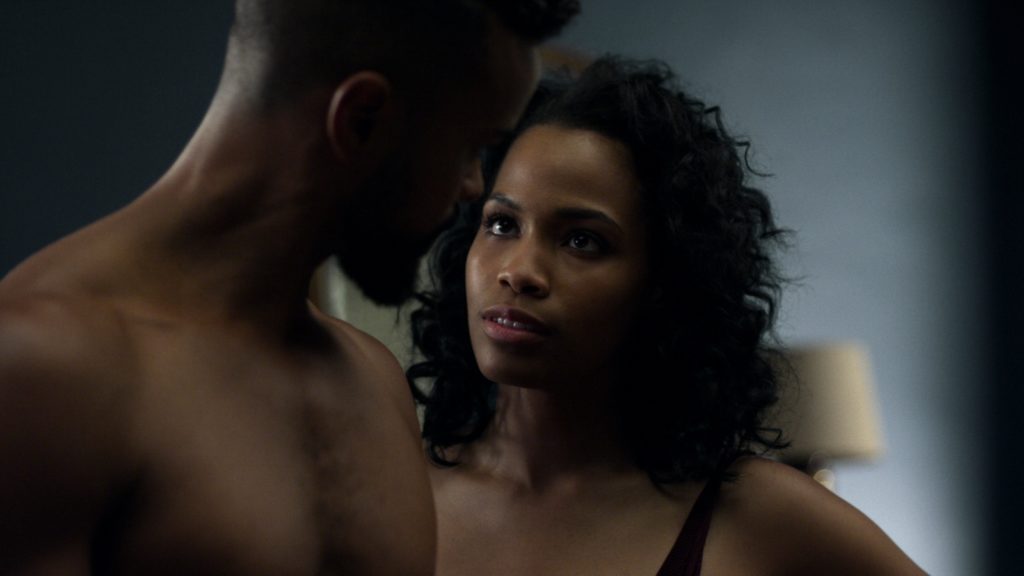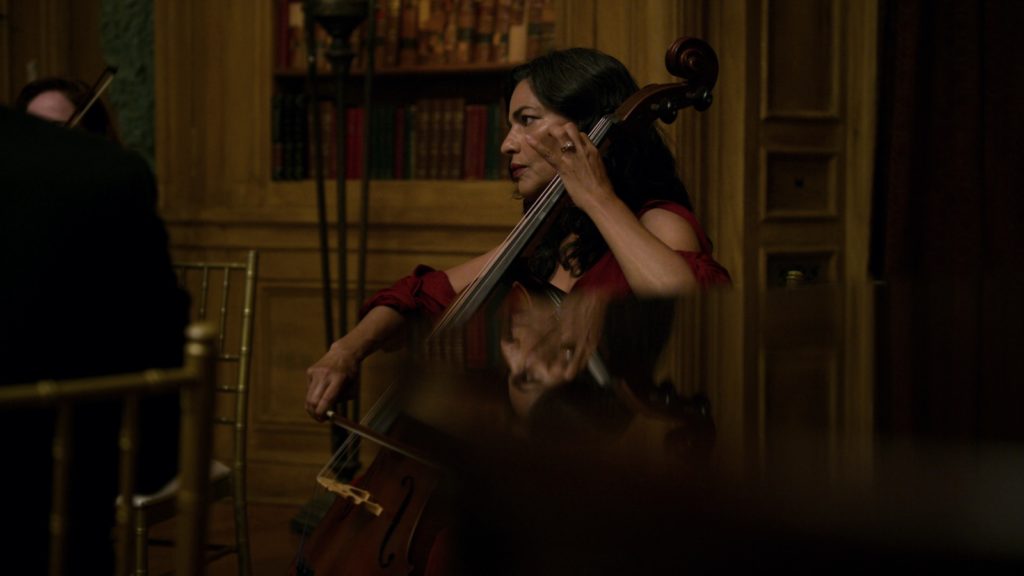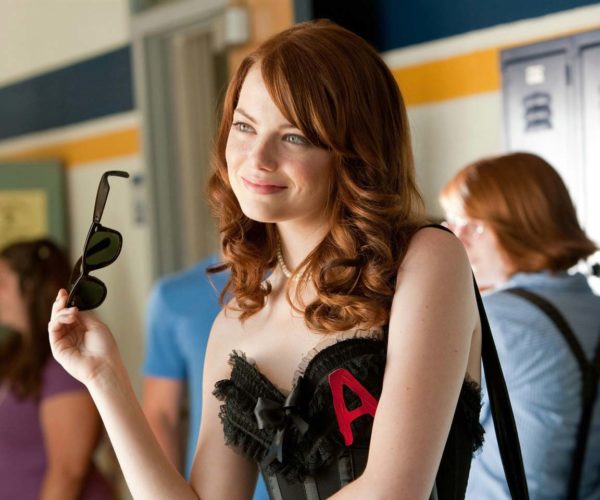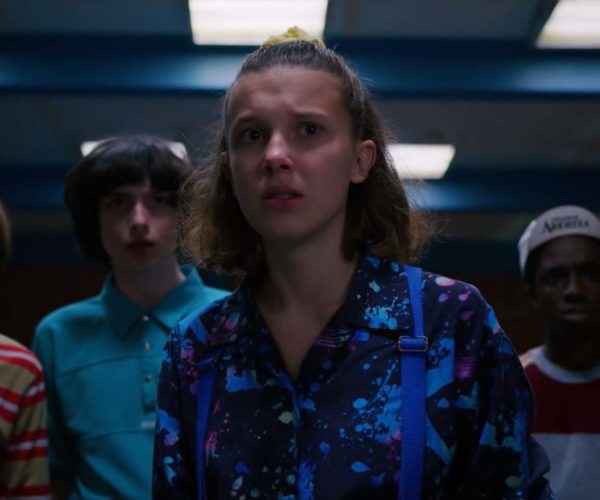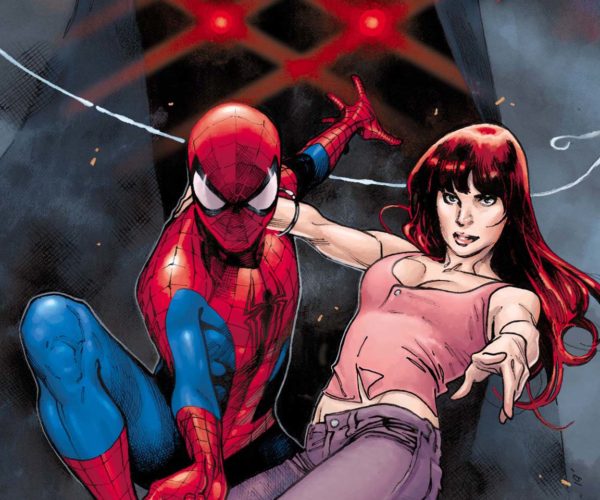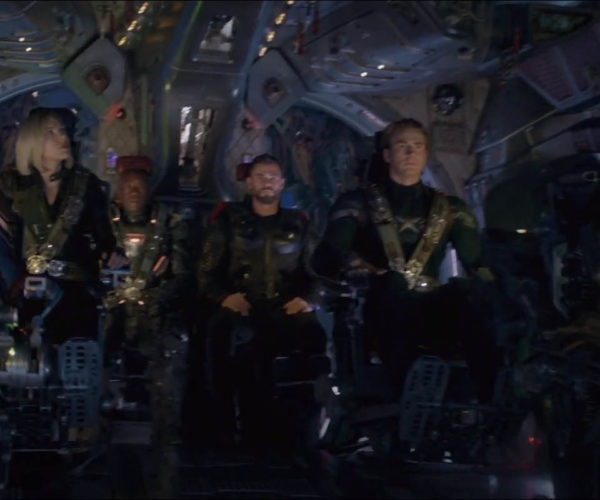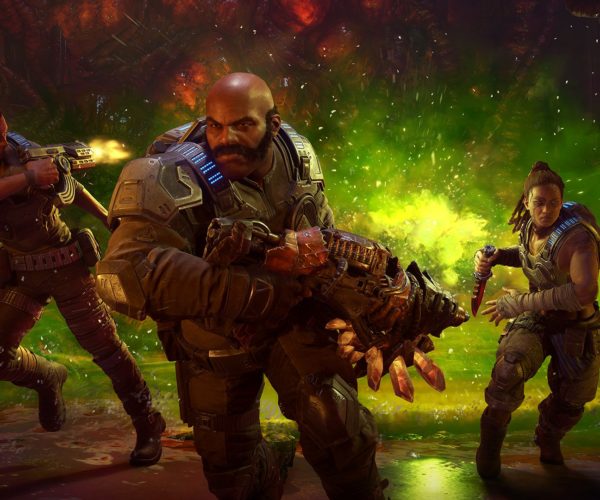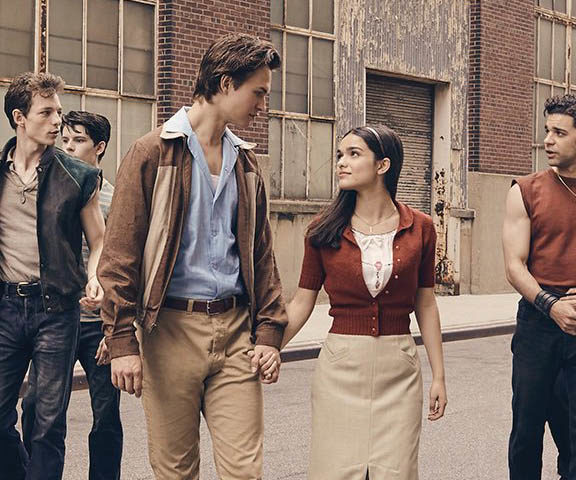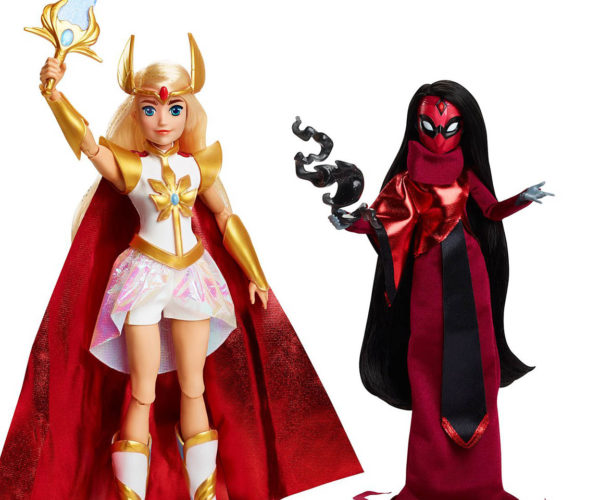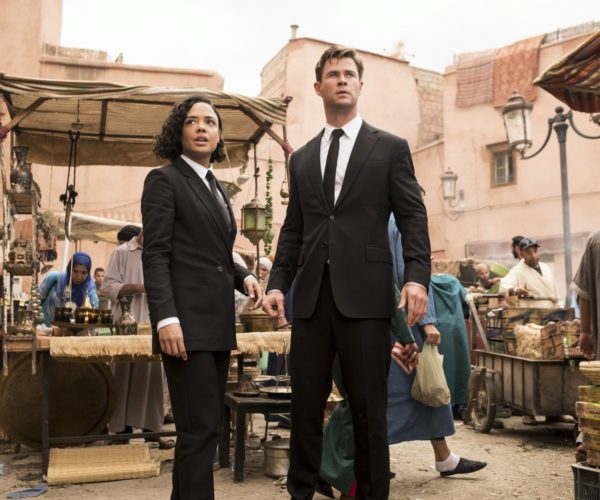No one looks at all the 50-plus seasons of different Law and Order shows and talks about them as a collected universe to analyze them. It seems kind of weird that we do that with the six shows and 13 seasons that make up the comparatively short-lived Marvel-Netflix collaboration. Even so, it’s hard not to look at the final season of Jessica Jones – and thus the final season of the small universe Marvel created – as being a quiet death for what was once a really cool project. Jessica Jones is representative of the whole endeavor; its heights represent some truly great TV, and its lows are abysmal. It has a wildly charismatic cast and an interesting premise. But it constantly squaders that with meandering stories and weird choices throughout yet another overlong season that does some good stuff with its best characters but struggles to justify its episode count.
Get ready for spoilers for Jessica Jones season 3.
Season 3 picks up not too long after the end of the second. Jessica is again mourning the death of her mother after being reunited with her in the strangest way possible – only to have her taken away again when her adoptive sister shot her down. The two aren’t talking, so Jessica doesn’t know what we learned in the final moments of season 2. The mad doctor’s very pokey experiment worked, meaning Trish Walker is now superhuman. Meanwhile, Jeri Hogarth’s ALS is advancing, Malcolm Ducasse is climbing the career ladder, and of course, Alias Investigations is still trucking along, but now with an actual employee who has positive boundaries and a healthy work-life balance. Gillian might be the lowkey MVP of Jessica Jones Season 3.
But as is the life of an outed superhuman, Jessica’s life doesn’t stay normal for long. A hookup with a guy named Erik is followed by an attack from an unknown assailant, kickstarting Jessica Jones’ final adventure. While Trish tries to figure out life as a superhuman, Jess is in the hospital recovering from a stabbing at her doorstep, orchestrated by the guy who will become the primary villain for the season, a man named Gregory Salinger.
Salinger is called Foolkiller in the comics, and killing people he considers fools seems to be his main goal here, though he does it without donning a mask and indeed makes the idea of masks and powers as being unfair advantages central to his ideology. Salinger is played by Jeremy Bobb, who you might know as Mike from Russian Doll. Bobb gives Salinger a narrow-focused determination that helps ramp up the creepy factor. Salinger is unpowered, and so determination and focus are his real powers.
Salinger is initially outed by Jessica’s new love interest, Erik Gelden. Like Jessica and Trish, he’s a powered individual, but his powers a bit more nebulous. Specifically, he is able to sense how evil someone is. While this is put to interesting use a few times, it mostly acts as a MacGuffin; a shortcut to spur on the story rather than an interesting thing in and of itself.
Gelden struggles with his powers, as his ability is a source of physical pain. To make the pain worthwhile, Gelden has turned his ability into a source of revenue, and his blackmailing experience helps lead Jessica to Salinger, who doesn’t waste time explaining himself to Jessica like a classic supervillain. The difference is, Salinger is three steps ahead of Jessica, and his monologuing feels less like a Bond villain and more like Ozymandias from Watchmen, if he lived in a small New York apartment and kept worms as pets.
Salinger has the potential to be interesting, but he feels often misused by the show.
For example, Salinger moves the crosshairs off himself and onto Jessica when he ends up defended by Jeri Hogarth. He uses this time to call Jessica a “feminist vindicator” (though the show never revisits this idea, either to say it was a ruse or that he genuinely believes it; it’s just a thing he says.) and to call upon the public to look at powered people as the advantaged cheaters he sees them as. After this, a lot of time is spent in legal wranglings, with Jeri asking Malcolm to investigate people or arguing with Jessica or her employees about defending a serial killer.
Gelden, too, feels like somewhat squandered potential. In three seasons of this show, he’s the closest thing to an equal relationship Jessica has. Luke might’ve been the “best” relationship, and Oscar from last season might’ve been the most normal. But Gelden’s specific mix of self-loathing, self-medicating, and a basically good heart puts him on relatively even footing with Jessica. He makes dumb mistakes as often as she does, but he doesn’t act with malice, doesn’t lie. My thought upon first seeing him was that he would end up manipulating her. Instead, the two work off each others’ energy relatively effectively and, in the end, realize they’re not great together.
But the core of the show is the three women: Jessica, Trish, and Jeri.
There are a few themes at work in this season of Jessica Jones: the way we deal with trauma and the way those with power handle the idea of justice immediately jump out as two major themes.
In Jessica Jones‘ third season, everyone is dealing with trauma, as we outlined above, and it pervades every storyline. Except for Gillian; she has her life together. Ironically, Jessica seems to be in second place. After being forged in the fire of the first two seasons, she seems to be learning. Yeah, she’s still a self-medicating alcoholic, but Alias Investigations seems to be a business instead of just a word on a window. Gillian is fielding calls, and Jessica has a laundry list of cases to work on. When she struggles throughout the season, she starts to resist her tendency to ball up and instead starts reaching out and even seems to like the idea of having a partner-in-crime-fighting to coordinate with.
Meanwhile, Trish and Jeri are both spiraling – hard. Jeri is a high-powered, self-made lawyer, and she sees her legacy being undone by the one thing she can’t control: disease. Jeri previously used her clout to, both intentionally and unintentionally, make Jessica’s life tougher. Here, she seems to be lashing out in desperation. We’re introduced to an old flame named Kith, a woman with whom Jeri was in love with decades ago. Kith is a talented musician with a seemingly good life. Jeri decides she wants her back, though, and puts Malcolm on Kith’s husband with the intention of destroying Kith’s marriage. The explosion that results from that has a ripple effect that ends up destroying her relationship with Kith, pushing Malcolm away, nearly destroying her law firm (still growing after having to restart it during the previous season), releasing a serial killer back onto the streets, and more.
Trish, meanwhile, is convinced that she needs to be using her powers to do good, but has no idea how to do good yet, and each mistake makes her tailspin go wider. Her implosion feels like the most realistic version of what it would be like if someone with superpowers decided to act like a superhero. She gets a costume, a hideout, and tries to hold down a day job to balance out her identity. But her heroic actions differ from Jessica’s. As a licensed private investigator, Jessica has a good idea of what the law allows her to do, and she frequently interacts with officers. She constantly pushes at the boundaries of what the law allows, but it’s hard to pin things down.
Trish, meanwhile, is taking actions that put people in jail temporarily at best and cast a poor light on the vigilantes of New York City. She tries to take down a bad cop and accidentally kills him; the cops think Jessica did it. So she tries to beat up another guy while Jessica is in police custody, but accidentally kills him. Unlike Jessica, she hasn’t had years to adjust to these powers in an everyday setting. She goes from zero to asskicking, and it goes about as well as you’d expect, like someone getting their first pistol and going out looking for trouble. She’s doing the wrong things for the right reasons, and the right reasons keep spurring her on, occupying her and making the idea of taking action irresistible. Jessica tries to tame her, but her desire to use her power and to Be A Hero cloud her judgment of what justice means, and personal justice gets in the way of actual justice over and over again.
My biggest disappointment with Jessica Jones season 3 is that we have this great cast made up of all these interesting women characters played by amazing actresses, and the show constantly pits them against each other. The downward spiral Trish rides is interesting, but I can’t help but think I would have loved to have seen her and Jessica working together in a way that helps Jessica build trust in herself and helps Trish deal with her grief and trauma. The same goes for Jeri’s turn as the show’s heel. She’s always been a fence-rider, but this season has her going full asshole. Her struggles with ALS could’ve given her a perspective on leaving a positive legacy that led her down a very different path. We so often see women being pitted against each other in overdramatic and often hackneyed ways. The next season of Supergirl is going to tangle with this, too, and I’m scared they’re going to send Lena Luthor down the classic supervillain route.
A drama like Jessica Jones absolutely has to test the bounds of these relationships, but Jessica Jones season 3 just breaks all of the relationships down, and it’s infuriating. Look at how horrible all these people are, and now they’re suffering. The end.
One thing the show has in common with previous Marvel-Netflix efforts is that it’s a few episodes too long. Early in negotiations, it was decided that the first batch of Marvel shows – Daredevil, Jessica Jones, Luke Cage, and Iron Fist – would be 13-episode seasons. The Punisher wasn’t planned at this time, and was negotiated separately, which is why it had a 10-episode season, and the Defenders was meant to be a mini-series. It got bad enough that Iron Fist got negotiated down to 10, and that made for a much better show.
Jessica was stuck with 13 episodes.
The showrunners try to use this time effectively. We get two episodes from Trish’s perspective, for example, and they do a great job of showing us that real-world superhero life that Trish is trying to capture. But one of those episodes has half its runtime made up of clips we literally saw the episode or two previous. In a weekly show that could actually work really well. I love the idea of switching perspectives to recontextualize existing material. “Here’s where this scene ended for Jessica, but it kept going for Trish.” It’s a cool idea. But I literally just watched those scenes, and it made pulling my phone out and dinking around with Marvel Puzzle Quest almost too tempting.
A bunch of the Salinger stuff could’ve been cut. Poor Malcolm seemed to be spinning his wheels and was there more to get himself in trouble than anything. Without a better storyline, he almost could’ve been left out entirely. As a 10-episode show, this could’ve been very good instead of just fine. The scaffolding is there, despite my misgivings about the relationships between the women who make up the heart of the show.
As a send-off to the Marvel Netflix Universe, we could’ve done a lot worse than Jessica Jones season 3. It’s an improvement on season 2 for sure, but never equaled the highs of season 1, which is the MNU’s best offering. Daredevil‘s third season feels like the true ending of this mini-universe, with Punisher and Jessica Jones‘ final seasons just tying up loose ends; epilogues more than anything.
The thing I’ll miss most, of course, is Krysten Ritter. She’s a joy to behold as Jessica, and it’s hard to imagine she was Chloe in Don’t Trust the B. Ritter is a wildly different person here, and interviews suggest that Jessica is a character she’s inhabited more than simply played. And this season, we got to see an episode directed by Ritter – and it was one of the good ones. There’s this great montage of Trish training herself that ends with a long shot of her jumping up and down and cheering alone beneath an underpass, where she’s tiny against this huge concrete backdrop, and it’s somehow both funny and poignant.
It’s disappointing that the MNU died the way it did, but I’m glad we got one more adventure with Jessica Jones, all told.
